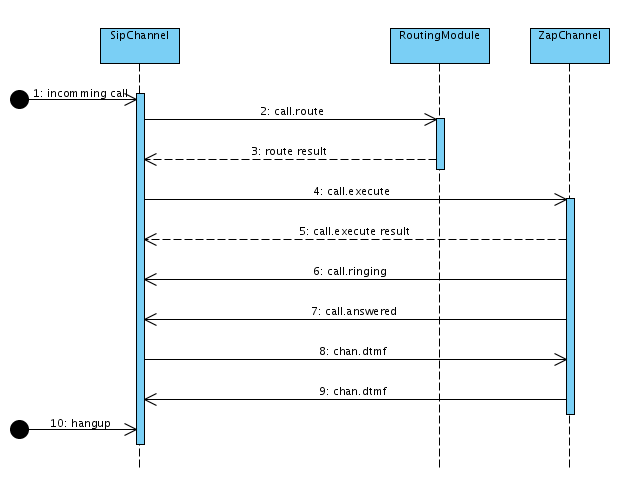Message Flows
From Yate Documentation
(Difference between revisions)
(→Incoming Call Setup) |
(→Hangup) |
||
| Line 20: | Line 20: | ||
===Hangup=== | ===Hangup=== | ||
| − | When incoming channel detects hangup(10) it | + | When incoming channel detects hangup(10) it disconnects its CallEndPoint. That results in [[chan.disconnected]] and eventually [[chan.hangup]] messages(not included in the diagram) sent by both channels. |
Revision as of 17:19, 15 November 2012
Contents |
Incoming Call Setup
Flow of messages:
Routing
When a channel detects incoming call(1), it sends call.route(2) to decide where to route it to. The call.route message maps a called number to a call target.
Connecting
When the call target is known, incoming channel attaches its CallEndPoint to call.execute message(4). Recipient should connect its CallEndPoint to CallEndPoint attached to call.execute. While waiting for call acceptance recipient may send call.ringing(6). On call acceptance call.answered(7) is sent.
During the call
During the call chan.dtmf messages(8,9) may be sent in both directions.
Hangup
When incoming channel detects hangup(10) it disconnects its CallEndPoint. That results in chan.disconnected and eventually chan.hangup messages(not included in the diagram) sent by both channels.
